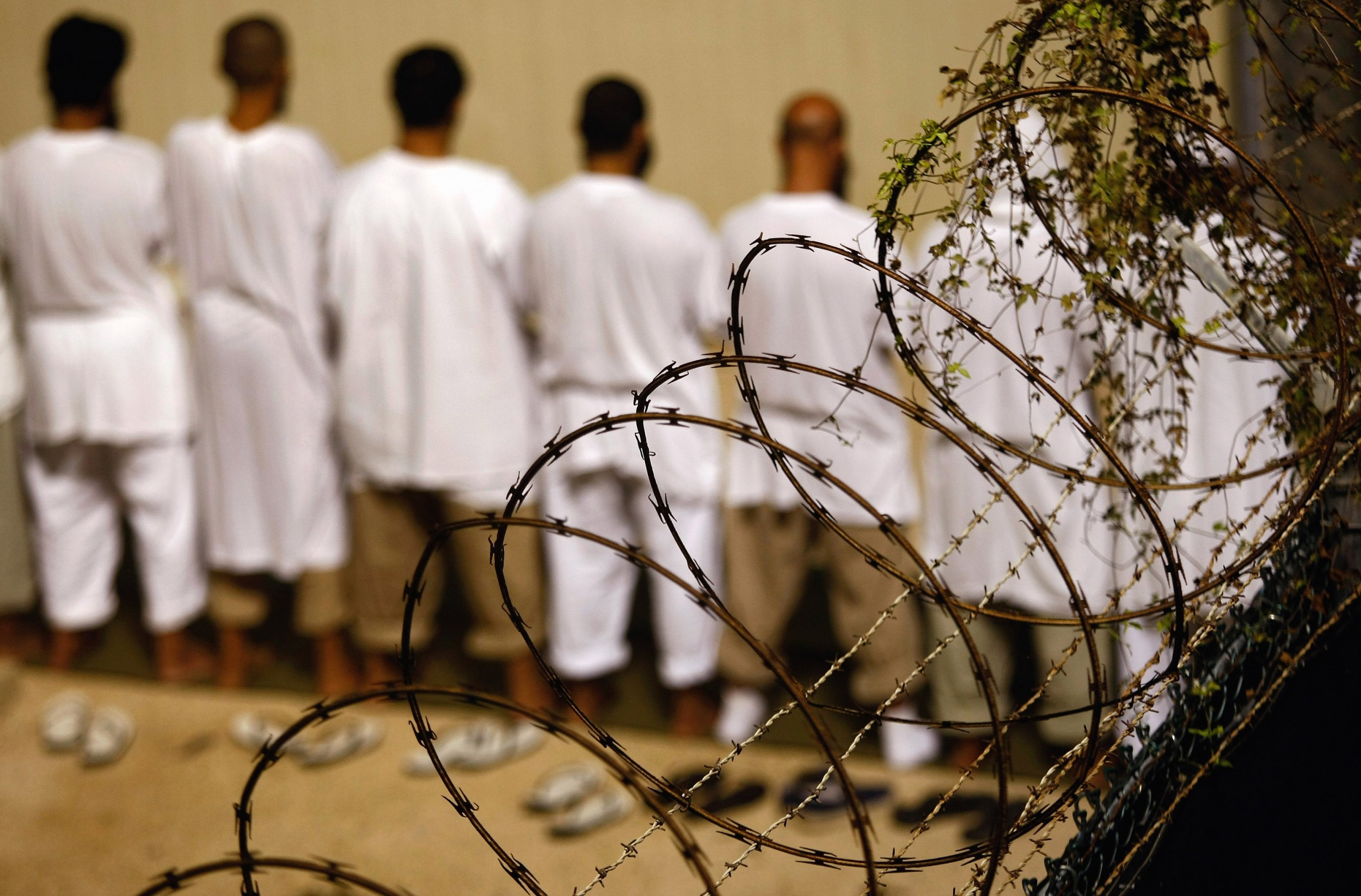
The Trump administration has postponed making a decision on the prosecution of an Al-Qaeda suspect being held by the United Arab Emirates in Yemen, according to officials.
Abu Khaybar, a Sudanese citizen, is languishing in the war-torn country where Washington's Emirati ally is conducting military operations as part of the wider Saudi-led coalition, the New York Times reported.
His case, and potential incarceration at a facility such as Guantanamo Bay in Cuba—where several dozen suspected extremists remain—poses one of the first challenges to President Donald Trump's campaign pledge to fill the detention center with "bad dudes."
No new prisoners have been sent to Guantanamo Bay since 2008 and Trump officials appear to have demurred on sending Abu Khaybar there, at least for the time being.
The Pentagon and State Department had not responded to a request for comment at the time of writing.
Both Trump and his Attorney General Jeff Sessions, particularly at his confirmation hearing, have made clear that they believe the facility should remain open, in the face of criticism from human rights groups and attempts by the president's predecessor Barack Obama to have it closed.
The center has drawn criticism for reports of torture and mistreatment of prisoners. Its critics say the U.S. is breaching international human rights law and, worse, extremist groups have used the center's continuing operation as part of its strategy to recruit disaffected Muslims across the world.
The military tribunals at Guantanamo have yet to prosecute anyone accused of involvement in the 9/11 attacks, the very reason the center was created, and the Trump administration is facing the realization that the criminal system is a much quicker route for the prosecution of extremists.
Trump appeared to acknowledge the difference between the two processes following the truck-ramming attack in Manhattan that left eight people dead in November.
"Would love to send the NYC terrorist to Guantanamo," he tweeted in a November 2 post, "but statistically that process takes much longer than going through the Federal system."
So it remains unclear where Abu Khaybar, who is in his forties, will begin his sentence in U.S. hands, if at all. It leaves the man who is believed to have been an Al-Qaeda operative in Yemen, as well as its affiliate in Somalia, Al-Shabab, in effective limbo for the time being.
Law enforcement officials have long believed the criminal system to be a more effective path for accused terrorists than incarcerating them without trial or charge at the military facility. But Trump has suggested that he will ignore human rights considerations and possibly revive the torture methods that proved so controversial under George W. Bush.
Currently only 41 men remain at Guantanamo and as many as six of them are on hunger strike in protest at their many years of incarceration without charge. The oldest prisoner at the detention facility, 70-year-old Saifullah Paracha, told Newsweek in November that life at the center had become a new hell for prisoners under the Trump administration.
Paracha claimed that under the new administration, military officials are allowing hunger strikers to weaken past the point of medical intervention, when prisoners were previously subjected to the force-feeding of nutritional supplements through nasogastric tubes, pushed through their noses and into their stomachs. He says the administration and military officials present at the facility are subjecting those remaining prisoners to "collective punishment."
Uncommon Knowledge
Newsweek is committed to challenging conventional wisdom and finding connections in the search for common ground.
Newsweek is committed to challenging conventional wisdom and finding connections in the search for common ground.
About the writer
Jack is International Security and Terrorism Correspondent for Newsweek.
Email: j.moore@newsweek.com
Encrypted email: jfxm@protonmail.com
Available on Whatsapp, Signal, Wickr, Telegram, Viber.
Twitter: @JFXM
Instagram: Read more





